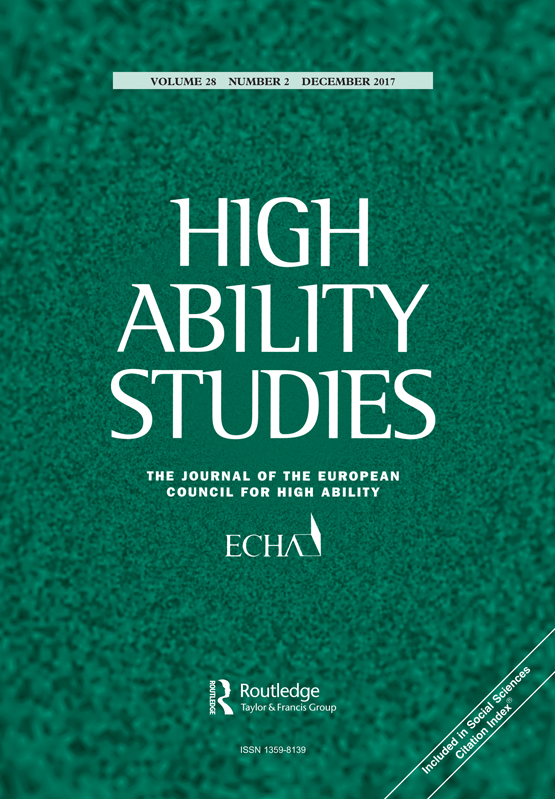tandfonline.com har udgivet en rapport under søgningen “Teacher Education Mathematics”:
Abstract
Abstract
There are two competing stereotypes of gifted students: harmony theory (gifted students are well adjusted and successful in life) and disharmony theory (giftedness forms a threat to a harmonious development). In this context, the PISA 2012 data were used to explore middle-school students’ experiences in terms of sense of belonging, student–teacher relations and attitudes toward school concerning learning activities/outcomes. Fifteen-year-old students from 13 European countries were selected for this data-set (normative = 79,550, gifted = 1956). Student’s scores on the four scales were tested for significant differences with students from that same country. Tests revealed no significant differences for 55% of the comparisons, 40% of comparisons had positive effect sizes for gifted students, and 4% had negative effect sizes. The evidence presented in this study supports the existence of harmony theory. More specifically, the vast majority of gifted students in this study reported equal or higher level of belonging. Contained within the findings in this study on students’ to the sense of belonging is a lack of evidence of gifted students reporting higher levels of loneliness. These findings strongly reflect the Terman’s assertion almost a century ago stating the lack of gifted children tending to be more socially maladjusted.
